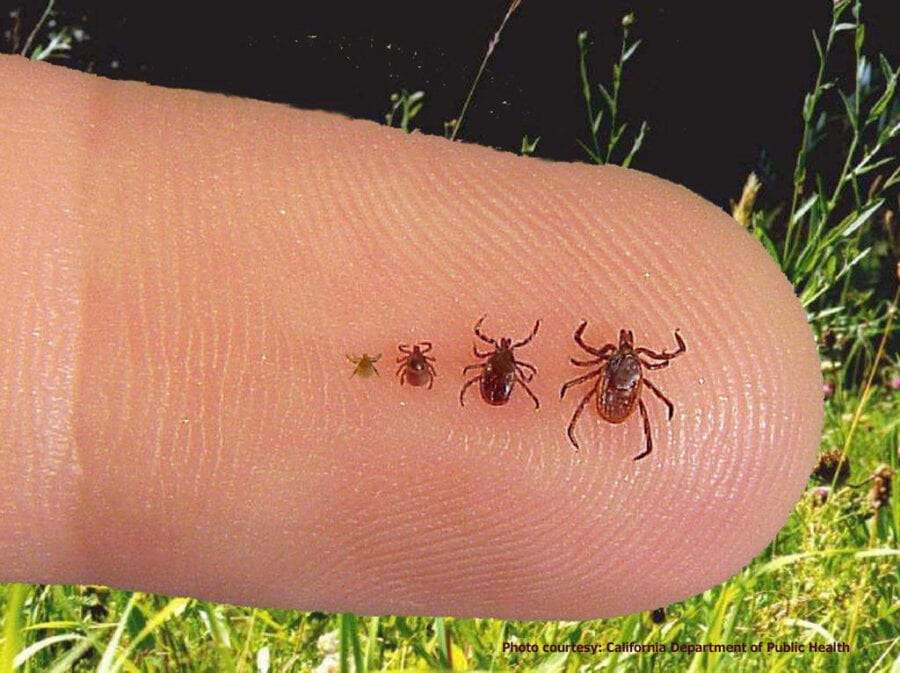As hunting season opens, the Illinois Department of Public Health (IDPH) wants to remind hunters to take precautions against tick bites to prevent contracting diseases they may carry, like Lyme disease. Other tickborne diseases include Rocky Mountain Spotted Fever, Tularemia, Ehrlichiosis, and Babesiosis. While most tickborne infections are reported during the summer, ticks are still active when temperatures are above freezing.
To avoid tick bites, hunters can take precautions before, during, and after hunting.
Before Hunting
- Treat boots, clothing, and camping gear with products containing 0.5% permethrin,
- Use Environmental Protection Agency (EPA)-Registered Insect Repellents containing DEET, picaridin, IR3535, oil of lemon eucalyptus (OLE), para-menthane-diol (PMD), or 2-undecanone.
- Treat dogs regularly with tick prevention products recommended by your veterinarian.
During Hunting
- Tuck your pants into your boots or socks and tuck your shirt into your pants to prevent ticks from crawling inside clothing.
- Walk in the center of trails to avoid brushing up against vegetation with ticks.
- Wear gloves when dressing or butchering game and wash hands thoroughly afterwards. People can become exposed while handling infected animal tissue to diseases such as brucellosis, tularemia, and rabies.
After Hunting
- Shower immediately after being outdoors to help remove unattached ticks.
- Perform a full body check to look for ticks.
- Check dogs for ticks after returning home. The most common location for ticks on dogs includes the ears, around the eyes, between the legs, around the tail, and between the toes.
- Remove any attached ticks using fine-tipped tweezers.
Call your health care provider if you experience any of the following symptoms of tick-related illnesses, which may occur within days to weeks after being bit by a tick.
- Fever/chills. All tickborne diseases can cause fever.
- Aches and pains. Tickborne diseases can cause headache, fatigue, and muscle aches. People with Lyme disease may also have joint pain and swelling.
- Rash. Lyme disease, Southern tick-associated rash illness (STARI), Rocky Mountain spotted fever (RMSF), ehrlichiosis, and tularemia can cause distinctive rashes.
For more information on tick identification and tickborne diseases, visit the IDPH website.
For more information on ticks in your area, please visit the IDPH Tick Surveillance Mapping Application.
***Report Courtesy of the Illinois Department of Public Health***
















